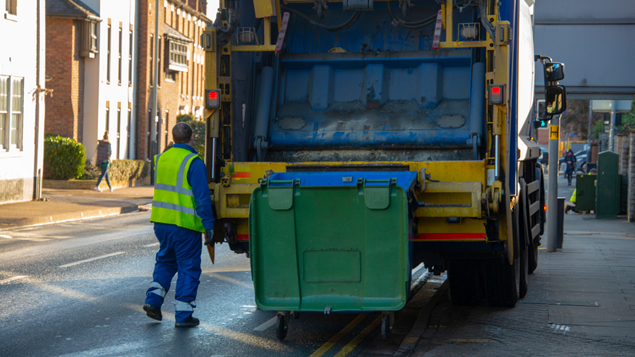[ad_1]

Shutterstock
Waste management organisations have been warned against becoming complacent around other serious health and safety risks while taking measures to reduce the spread of Covid-19.
According to the Health and Safety Executive (HSE), which issued the warning, waste firms were experiencing lower than usual levels of sickness absence and reporting “near misses” that had a high potential for a serious accident.
It believed that, because of their focus on coronavirus safety measures, waste management staff were often forgetting about the “basic” health and safety risks still faced by their profession.
For example, it said employers in the sector should take steps to ensure staff do not step unaware into traffic because they were “concentrating so hard on social distancing”.
The waste management industry has a fatality rate 18 times that of the all-industry rate, the HSE said, with transport and machinery responsible for the majority of deaths in the sector.
HSE’s chief executive Sarah Albon said: “No one should be hurt or killed by the work they do. In these extraordinary times, we have seen many workers risking their lives to help others during the coronavirus outbreak. Although these statistics are not a reflection on Covid-19 related loss of life, it is a pertinent time to reflect.”
Its workplace fatality statistics for April 2019 to March 2020, published earlier this month, revealed that 111 people across all industries were fatally injured at work, compared with 149 the previous year.
Although this figure was the lowest annual workplace death rate on record, the HSE noted that the reduction in annual deaths was likely to have been accentuated by the impact of coronavirus on the economy and the consequent reduction of people working in the final two months of the year.
Five people in waste and recycling died while at work last year, despite relatively few people being employed in the sector.
The largest share of fatal injuries was seen in the construction sector (40 people), while 20 staff in agriculture, forestry and fishing lost their lives at work.
The three most common causes of fatal injuries continue to be workers falling from height (29), being struck by a moving vehicle (20) and being struck by a moving object (18). Together these accounted for 60% of fatal injuries in 2019/20.
Albon said: “These statistics remind us that in certain sectors of the economy, fatal injury in the workplace remains worryingly high. Agriculture, forestry and fishing accounts for a small fraction of the workforce of Great Britain, yet accounted for around 20% of worker fatalities in the last year. This is unacceptable and more must be done to prevent such fatalities taking place.”
Meanwhile, a London-based waste collection company has called for the introduction of “pop up” bins in city centres for the disposal of personal protective equipment (PPE), as it feared the risk of Covid-19 infection could be increased by high street users using general waste bins to dispose of used facemasks and gloves.
Business Waste spokesperson Mark Hall said: “PPE can’t just be placed into a normal bin. It falls under the category of hazardous waste, which is why we need separate bins made available to the public.
“Regular littering is bad enough, but this is litter which is not only terrible for nature, but could also run the risk of spreading the virus and making you ill.”
[ad_2]
Source link





